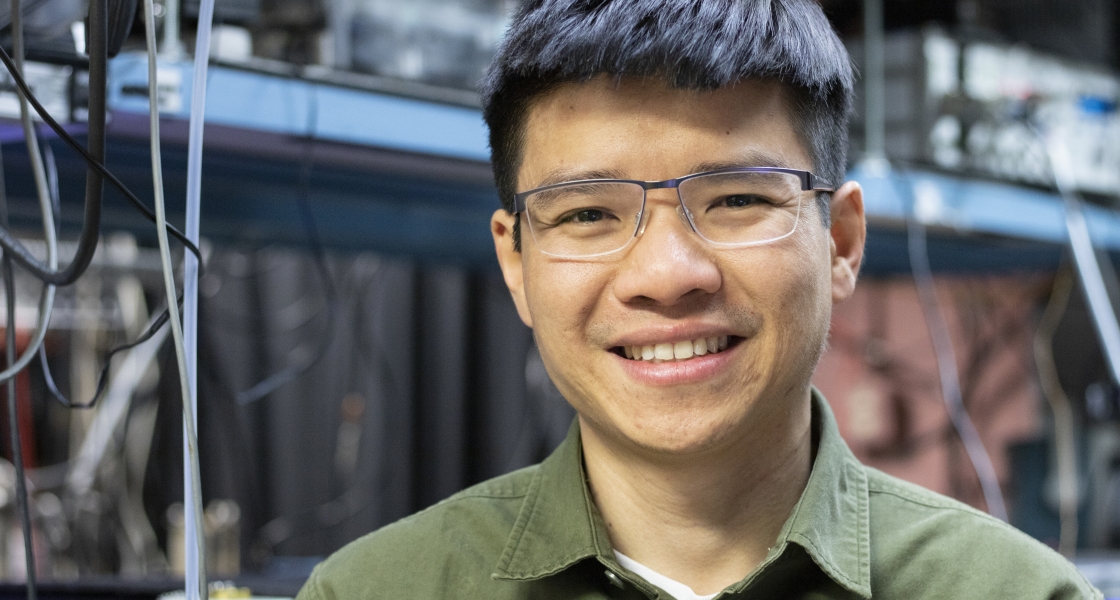Thinh Bui, a postdoctoral researcher in Jun Ye's group, won the 2018 Longuet-Higgins Early Career Researcher Prize from the journal Molecular Physics. The journal awards this prize to researchers who have published their paper within five years of earning their doctorate. The Longuet-Higgins Early Career Researcher Prize is $1,000. It's an honor to win, Bui said.
"Many of your peers are publishing in this journal, and this recognizes the work we do at JILA," Bui said.
Bui's winning paper, "Spectral analyses of trans- and cis-DOCO transients via comb spectroscopy," was published in the journal in 2018. This study watched how hydroxide and carbon monoxide reacted to create hydrogen and carbon dioxide. This reaction happens in combustion, like inside an engine or lighting a match, in Earth's atmosphere and the atmospheres of other planets.
"When you burn anything, you create these molecules and that dictates what we see (like a flame)," Bui said. The products of that reaction, like carbon dioxide, are at the center of real life problems like climate change, he explained. That's why scientists since the 1960s have focused basic research on understanding these reactions.
Scientists had suspected that a free radical called HOCO formed in the middle of the reaction between hydroxide and carbon monoxide, but it lived so briefly, that no one had been able to observe it before. Using JILA's finely tuned frequency comb, Bui and his team were able to detect it.
"It lives in a flash," Bui said, lasting only a microsecond. And they found something else. A trans configuration of HOCO didn't produce carbon dioxide. Now research in this field is progressing to understand how we can manipulate these molecules.
Bui added that winning the Longuet-Higgins Prize is also a testament to the working environment at JILA.
"The best part about working in Jun Ye's group is you have a lot of flexibility to explore your intellectual curiosity," he added. "He let me explore these problems that I thought were interesting."
Bui is going on to NIST in Maryland to work on magnetic sensing research.




